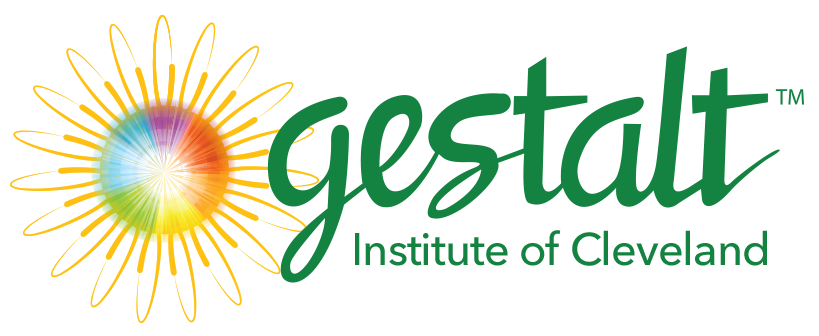
eMBODIMENT PROGRAMS
Discernment in Gestalt Therapy: An Advanced Training Workshop in Gestalt clinical Practice
This advanced workshop series is intended for Gestalt trainees and practitioners who want to hone their clinical skills and develop the practice of “Discernment”, distinguishing and adjusting our work in relation to the client’s internal and relational/contextual supports. In Gestalt training, students learn and emphasize the practice of contacting while primarily working with each other. Facing the daunting task of applying Gestalt methodology to a broad range of clients situated in unique and complex contextual grounds remains part of ongoing clinical development. The challenge in discernment is how to intervene with this client at this point given the present situation. As practitioners our challenge is to collaborate in a fresh sensory/thoughtful practice, using this discernment as a guide to our practice.
During this training we will focus on the importance of Co-Assessment, a model developed in the Working with Individuals training at the Gestalt Institute of Cleveland. This collaborative model supports the ongoing and mutual assessment of the client/therapist and their situation (Woolants,2000.). We will move beyond a pervasive split between relational and embodied patterns in situ, to include all aspects of the situation. Developing this horizontal and shared map of the work/dance of our Gestalt approach supports us in our clinical practices.
The workshop design includes experiential, theoretical and group discussion, "stop action" demonstrations, and lab practices. Participants will be asked to explore their own lenses and perceptions as a means of discerning interventions in collaboration with the client.
The Embodiment of Co-transference: Shame and Coregulation in Gestalt Therapy
How do we interact and co-create space with our clients when practicing Gestalt Therapy? What do we notice in our bodies and our clients’ bodies that is somatic, emergent and powerfully impactful, as well as both potentially difficult and healing? As we continue to meet one another, two aspects of the ground, shame and our mutual nervous systems, co-regulate the therapeutic relationship.
Embodied Co-Transference emerges out of the therapeutic relationship, supporting attachment and shaping the meaning we make with each other as contact partners. These interactions are based on historical relational patterns, as well as the uniqueness of the present dynamic, embodied, tissue-to-tissue relationship.
In this workshop we will attend to how we bodily impact each other when exploring themes, language and feelings. We will pay attention to the somatic experience of shame in both client and therapist. We will explore shame as an “atmospheric” phenomenon, and the ways in which shame can potentially serve as a cloak, infusing our bodies as we relate.
We will also attend to coregulation, as a mutual and interactive process of how we create connection and manage nervous system activation in our therapeutic relationships.
Working With Physical Process (WWPP)
Gestalt therapy, as a holistic approach, views physical experience and expression as intrinsic to a person's being and functioning. This advanced program is designed to refine and extend a practitioner’s skills in working with physical processes beyond those developed in basic Gestalt training.
The program focuses on developing greater awareness of one's own body experience and its use in relationship, developing a client's body sensation and awareness, working with breath, body structure, movement, developmental movement, and the energetic system of client/facilitator.
Is WWPP for Me?
Gestalt clinical, organizational, systems, coaching, and healing arts practitioners who wish to increase their embodied presence and refine their capacity via physical process and body experience.
The curriculum will include practicum hours with in vivo supervision, body-oriented personal growth group work, didactic lectures, experiential processes, and skill labs.
Prerequisite
Admission requires completion of a Comprehensive Gestalt Training Program. The applicant's personal and professional readiness to explore this type of work, as well as the compatibility of his/her work setting and field practice with the program's objectives will be considered.
Embodied Mindfulness: A Gestalt Way of Being
During these challenging times, support for mental stability has emerged as an increasingly important social and individual need. Our society is dealing with increased fear, isolation, and discord. Those in helping professions are experiencing increasing client loads and are reaching for support in their practices and work. This Training Program offers methods for self and other support contributing to a higher level of mental and emotional resilience. It is relevant to leaders, mental health professionals, teachers, attorneys, physicians, managers, coaches, consultants, clergy persons, community volunteers, parents – anyone who works with people. Research in neuroscience and mindfulness, combined with principles of Gestalt therapy serve as a foundation and springboard for a holistic developmental practice. Neuroscientists are charting the neural pathways that connect thought and emotion to physiology. Utilizing this research and our lifetimes of training and experience, GIC has built our mind-body-spirit connected practice into a powerful method for enhancing stability and presence in our work and lives in today’s world. The Training Program offers opportunities to work with others to experience the heightened interactive impact of this integrated practice.
The discipline artfully integrates gentle physical movement, sensory and energetic awareness, mental focus, emotional, spiritual, and relational awareness, and is unified by Gestalt principles. The Facilitators have been influenced by ancient Eastern martial arts; humanistic and family systems work; Gestalt bodywork; energy work; breath and sounds work; the body of research on mindfulness; and the latest findings in neuroscience.
